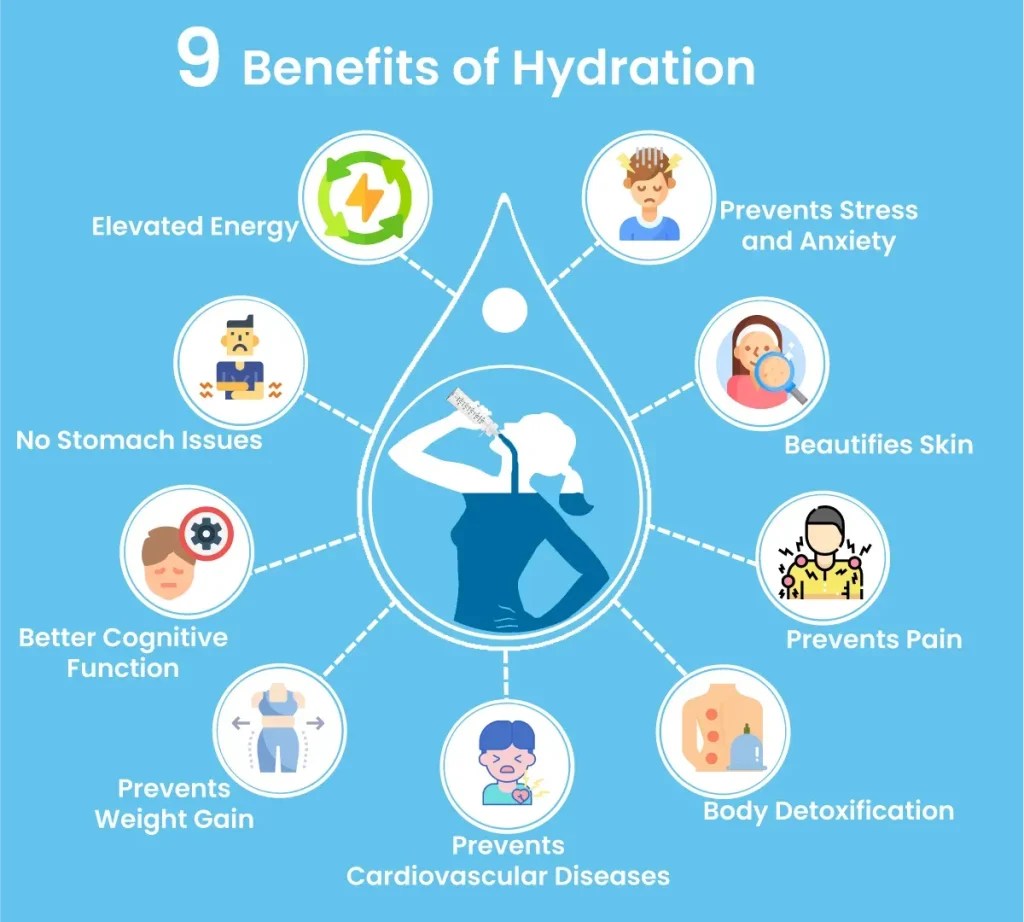Hydration and health are more interconnected than many people realize. Your daily water intake fuels every cell, supports cognitive function, and boosts energy levels. This knowledge translates into benefits for digestion, mood, and overall health. Being mindful of dehydration signs can help catch issues early before fatigue or headaches set in. This introductory guide provides practical steps to build a sustainable hydration habit that supports health across life stages.
Think of hydration as a dynamic balance of fluids that supports every body system. When your body maintains proper fluid status, circulation, digestion, temperature regulation, and waste removal work more smoothly. Adopt a practical frame for hydration: monitor fluid intake, consider water-rich foods, and align your habits with activity level. From the perspective of hydration status, body water balance, electrolyte harmony, and water science, you can connect everyday choices to lasting wellness.
Hydration and Health: How Water Supports Everyday Wellness
Hydration and health are deeply connected; your daily water intake fuels every cell, supports cognitive function, helps regulate body temperature, and keeps joints moving smoothly. Understanding why water matters empowers you to make choices that improve energy, mood, digestion, and long-term well-being.
The science of hydration shows that maintaining optimal osmolality and fluid balance supports nearly every physiological process. When you’re well-hydrated, blood volume remains stable, kidneys filter wastes efficiently, and electrolyte balance stays in check, which underpins consistent energy and better focus throughout the day.
Beyond basic survival, hydration benefits extend to skin health, immune function, and metabolic efficiency. Consistent fluid intake reinforces healthy habits around nutrition and activity, creating a cycle where hydration and health reinforce each other for better overall wellness.
Practical Strategies to Increase Daily Water Intake and Learn How to Drink More Water
If you’re wondering how to drink more water, start with simple, sustainable steps. Carry a reusable bottle, set regular reminders, and pair hydration with your daily routines to turn water into a constant habit rather than a goal you occasionally chase.
Flavor water with cucumber, lemon, or berries to make the habit enjoyable without added sugars, and track your intake to see progress over days and weeks. Also, incorporate water-rich foods like watermelon, cucumber, and lettuce to contribute to daily water intake while adding variety and nutrients.
Dehydration symptoms—such as darker urine, dry mouth, fatigue, or headaches—are signals to boost fluid intake. By adjusting for activity level, climate, and life stage, you can tailor your daily water intake to meet evolving needs and maintain steady hydration benefits.
Frequently Asked Questions
How does daily water intake influence hydration and overall health?
Daily water intake fuels every cell and supports cognitive function, temperature regulation, digestion, joint lubrication, and immune health. When you are well-hydrated, energy and mood typically improve, along with physical performance. Signs of good hydration include pale urine and regular urination; dehydration symptoms to watch for are dark urine, fatigue, headaches, and dry mouth. General guidelines suggest about 2.7 liters (women) to 3.7 liters (men) of total daily fluid intake, including liquids from food, but individual needs vary. Practical tips: carry a reusable bottle, monitor urine color, sip regularly, pair water with meals, and include water-rich foods like fruits and vegetables.
What practical steps can you take to drink more water and boost daily water intake for better hydration benefits?
Start with a simple routine: keep a bottle within reach and set reminders to sip throughout the day. Make water more appealing by flavoring with cucumber, lemon, mint, or berries instead of added sugars. Drink water with meals and after exercise, and track your intake with an app or simple log. Include water-rich foods such as watermelon, cucumbers, and oranges to help reach daily water intake goals. Establish a predictable pattern—morning, before meals, and after activity—to maximize hydration benefits and support overall health.
| Area | Key Points |
|---|---|
| The Science of Hydration |
|
| Why Water Matters for Health |
|
| Health Benefits of Staying Well-Hydrated |
|
| How to Know You’re Well-Hydrated |
|
| Daily Water Intake Guidelines |
|
| Practical Tips to Drink More Water |
|
| Hydration Across Life Stages and Activity Levels |
|
| Common Hydration Myths Debunked |
|
| A Quick-Start Plan to Boost Hydration (7 days) |
|
Summary
Hydration and health are deeply interconnected. By prioritizing regular water intake, you support cognitive function, energy, digestion, skin health, and overall well-being across daily life and life stages. Hydration is not about a single heroic action but about consistent habits, listening to your body’s signals, and choosing water as your daily hydration partner.

